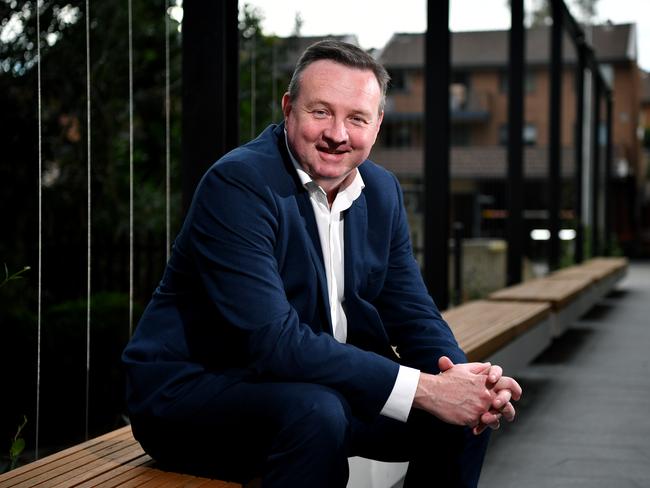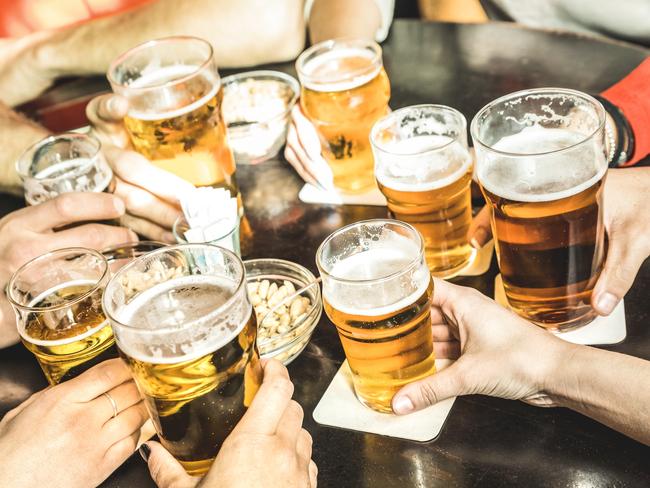Call to ‘retrofit’ Sydney suburbs with no pubs or clubs
THEY are the Sydney suburbs with no cheer — those without a local pub or club. If you want to head out for drinks this weekend, these are the 141 suburbs to avoid. FULL LIST.
NSW
Don't miss out on the headlines from NSW. Followed categories will be added to My News.
IT seems the Slim Dusty song was right — there is nothing more lonesome or drear than a suburb with no beer.
One in five Sydney suburbs don’t have a pub or club, meaning there is nowhere to meet or chat over a beer and a meal.
Worse, many outer Sydney suburbs are also lacking a local corner store or other small retail outlet.
Now Western Sydney Business Chamber director David Borger is out to change that.
Mr Borger is calling on councils, industry and the state government to find a way to give Sydney’s “cold” suburbs a new lease on life.

MORE FROM BEN PIKE
MAYOR THREATENS TO STRIP ‘LAZY’ COUNCILLOR OF PAY
NSW NOW HOME TO EIGHT MILLION PEOPLE
“We need to retrofit suburbs and make then more amenable and walkable,” Mr Borger told The Sunday Telegraph.
“We can learn from the 19th century suburbs close to the city. People want to visit them because they are liveable and amenable.
“Pubs, corner stores and other local retail — that is how you build relationships with neighbours.”
Of the 658 suburbs in Sydney, at least 141 (21 per cent) of them don’t have a pub or club.
A total of 52 don’t have a liquor licence (bottle shop or restaurant) of any kind, analysis of Liquor & Gaming NSW figures reveal.
Many of Sydney’s dry suburbs are in Western Sydney, including Camden Park, Bow Bowing and Old Toongabbie.
Most dry suburbs also rate poorly on Walk Score, an international website which measures how car-reliant individual suburbs are.
The most walkable Sydney suburbs outside the CBD, such as Crows Nest, Rockdale, Brookvale, Burwood and Kogarah are also ones with at least one pub.
Mr Borger said suburbs served only by a limited number of large shopping centres and “drinking warehouses” have made walking to pick up some milk or have a beer an impossibility.
“Traditional land use zoning has created sterilised neighbourhoods where employment and retail are absent and this has made life inconvenient and expensive for many Sydney residents,” Mr Borger said in a letter to the state government’s Greater Sydney Commission.
“I believe government should work in partnership with the private sector to
identify neighbourhoods across Sydney that have the capacity to sustain new neighbourhood retail shopping.

“Local councils have been slow to identify these issues and neighbourhood place making is rarely central to strategic considerations.”
In August the NSW Department of Planning changed the rules to make it easier for “neighbourhood supermarkets” and local shops to increase their retail footprint.
As Greater Sydney’s population grows over the next 20 years, there will be a need for more than five 5 million square metres of additional retail floor space and additional stand-alone office developments, according to the Greater Sydney Commission.
A GSC spokesman said 18 Greater Sydney councils have been given $45 million “to do local strategic planning … that focuses on mixed use centres, fine grain design and walkability that local centres require to be successful”.
A spokesman for Liquor & Gaming NSW said the department “supports stronger links between planning and liquor laws, and is exploring options to guide stakeholders through the application process”.

The Oatley Hotel is the local pub every suburb wishes it had — the food is good, it’s easy to get to and has a reputation as a hub for the area.
Local Donna-Lee Clift, along with Amy Lee Richards, Nina Wood and Charlotte Levi, work nearby and often come in for lunch.
“The pub is pretty low key in that anyone can walk in the door and feel pretty relaxed,” Mrs Clift, who has been coming to the pub for 20 years, said.
“You might have famous footballers come in but nobody really bothers them.
“This is a meeting spot for a lot of locals.”
Geoff Greenwood said while the place has undergone a few changes since he first walked through the door in 1968, other things haven’t.
“The camaraderie at the pub hasn’t changed and is a big reason why I keep coming back,” he said.
“I also love the food and the fact that I can walk home.”
Originally published as Call to ‘retrofit’ Sydney suburbs with no pubs or clubs


